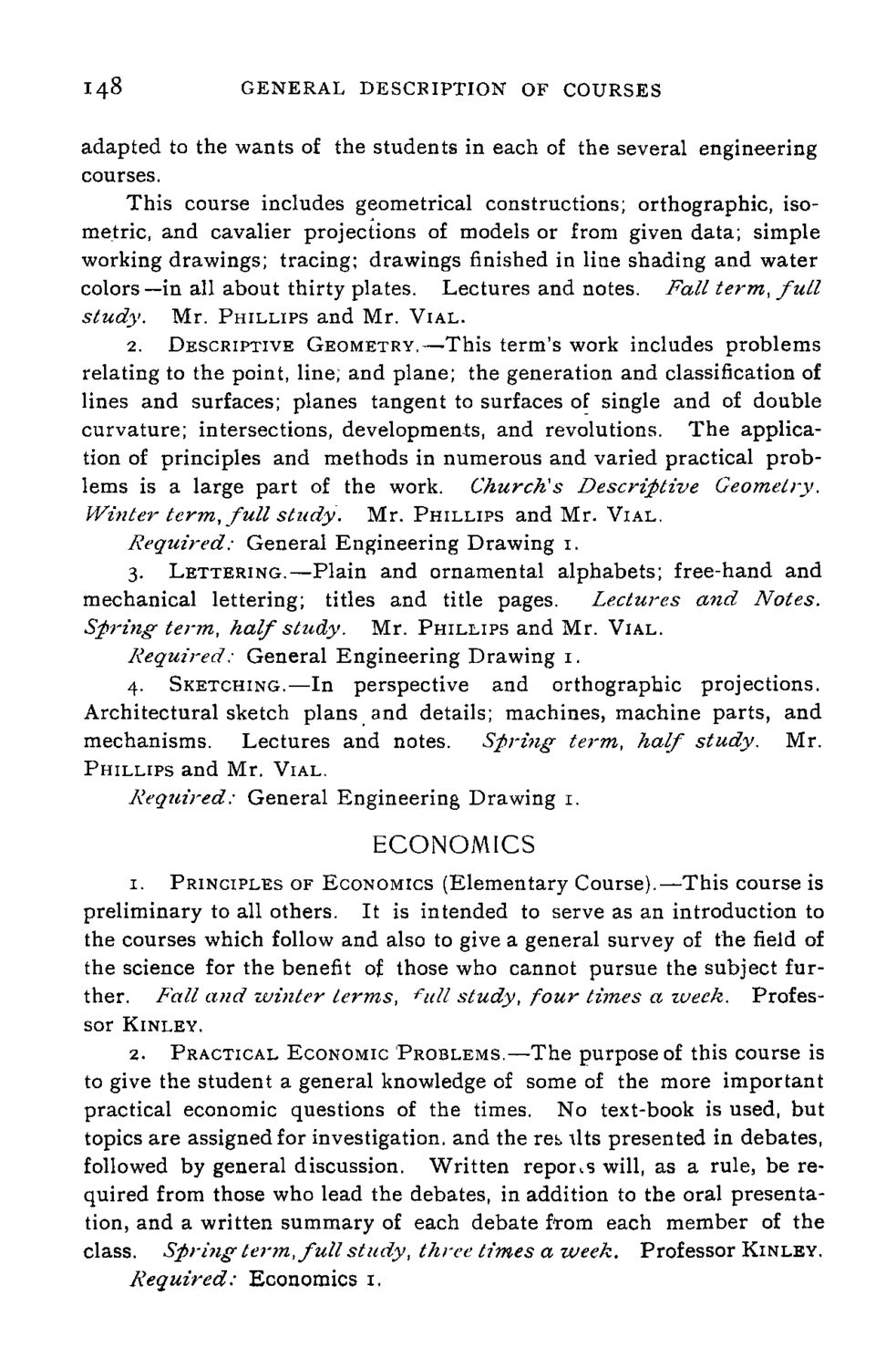Caption: Course Catalog - 1896-1897
This is a reduced-resolution page image for fast online browsing.

EXTRACTED TEXT FROM PAGE:
148 GENERAL DESCRIPTION OF COURSES adapted to the wants of the students in each of the several engineering courses. This course includes geometrical constructions; orthographic, isometric, and cavalier projections of models or from given data; simple working drawings; tracing; drawings finished in line shading and water colors —in all about thirty plates. Lectures and notes. Fall term, full study. Mr. PHILLIPS and Mr. VIAL. 2. DESCRIPTIVE GEOMETRY.—This term's work includes problems relating to the point, line; and plane; the generation and classification of lines and surfaces; planes tangent to surfaces of single and of double curvature; intersections, developments, and revolutions. The application of principles and methods in numerous and varied practical problems is a large part of the work. Church's Descriptive Geometry. Winter term, full study. Mr. PHILLIPS and Mr. VIAL. Required: General Engineering Drawing 1. 3. LETTERING.—Plain and ornamental alphabets; free-hand and mechanical lettering; titles and title pages. Lectures and Notes. Spring- term, half study. Mr. PHILLIPS and Mr. VIAL. Required: General Engineering Drawing 1. 4. SKETCHING.—In perspective and orthographic projections. Architectural sketch plans and details; machines, machine parts, and mechanisms. Lectures and notes. Spring term, half study. Mr. PHILLIPS and Mr. VIAL. Required: General Engineering Drawing 1. ECONOMICS 1. PRINCIPLES OF ECONOMICS (Elementary Course).—This course is preliminary to all others. It is intended to serve as an introduction to the courses which follow and also to give a general survey of thefieldof the science for the benefit of those who cannot pursue the subject further. Fall and zvinter terms, full study, four times a zveck. Professor KlNLEY. 2. PRACTICAL ECONOMIC PROBLEMS.—The purpose of this course is to give the student a general knowledge of some of the more important practical economic questions of the times. No text-book is used, but topics are assigned for investigation, and the ret. ills presented in debates, followed by general discussion. Written reports will, as a rule, be required from those who lead the debates, in addition to the oral presentation, and a written summary of each debate from each member of the class. Spring term, full study, three times a week. Professor KINLEY. Required: Economics 1.
|